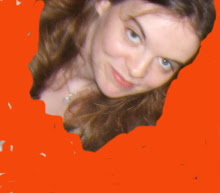
“And hast thou slain the Jabberwock?
Come to my arms my beamish boy!
O Frabjous day! Callooh! Callay!
He chortled in his joy.’
--Lewis Carroll from ‘Jabberwocky’ in Through the Looking Glass
A woman who is an actor, screenwriter, ex-cop, and lesbian once told me that she had no fear. ‘Really?’ I asked, trying not to sound too incredulous. ‘Nope,’ she answered.
This made me think. I’m not afraid of rats or snakes or spiders, and when I was held up at gunpoint I was able to focus on the robber’s scrawny shape, wide-set eyes, and large ears so that the cops got a good description. But I do have fears, deep and strange ones.
At one point I was writing a story about a woman who becomes unhinged. I used material from my own nightmares, family traumas, skeletons in the closet, hauntings. The first draft was difficult. I found myself experiencing the emotions of the character as I wrote. I know that suffering for art is a silly notion, but my pain seemed to prove that I must be doing ‘real’ work.
The despair and hopelessness that had racked me as a teenager began to resurface raw. I confided in a close friend, who later told me she was so worried that she had almost called my family; afraid I might take a dive off a high pier. I put the story down for a few months. In the second draft I glossed over those scenes, working instead on the less emotional material.
I wasn’t sure how to approach the piece. I wanted to do it maturely, with my center intact. I thought of a successful, grounded novelist I know through meditation work. She must have a method, I figured. ‘Maybe I should ask her’, I thought one night before bed. Then I went to sleep.
My novelist friend showed up in my dreams that night. She read two poems. One was about her cat, entitled ‘Green Angel’. It felt like an exhalation, an unwinding. The other was about some past trauma. I remember colors: bruise purple, jaundice yellow and cut red, a water color of pain that was rich but contained. I woke up feeling like I had a plan.
A mutual friend of ours had recommended a book by Alice Hoffman several years prior to this dream reference entitled Green Angel. It is a young adult novel written in simple, elegant prose that chronicles the journey of a girl named Green after she loses her family and the world as she knew it in an apocalyptic event.
I had picked it up in a bookstore once, putting it down again quickly because the subject matter seemed too depressing. But the day after my dream I found a copy and devoured it. The story is an inner map for healing the psyche written as a modern-day fairytale. The girl Green must find a way through her grief or else die of despair. She gradually begins to grow again after taking in a thin white greyhound who becomes her guardian.
That was it. I remembered that the ‘Green Angel’ poem in my dream had been about my writer friend’s cat. The dream’s message seemed to be that I couldn’t go into the nightmare realm alone. I needed a guardian. Luckily, I have a pack of dogs. There are the two bright-eyed waggers who whine for their dinner every night, and then there are other beloveds from earlier times who still show up in my dreams when I need them.
I know something about the special ability of animals to nurture the soul. Mired in my own depression soon after September 11th 2001, I found a ghost white, ancient, starved down dog in the New York City subway system who led me and my life partner slowly back to daylight.
I named the dog Beamish Boy from Lewis Carroll’s poem Jabberwocky because though his frail body and thin white coat revealed battle scars, he had made it through his ordeal, triumphantly snuggling into our arms. The three of us lived together for almost four years before Beamish passed away, very well loved.
I put a picture of him by the computer as I began the task of tackling my scary (to me) story. I asked my two waggers to watch over me too. The dogs sat on the overstuffed chaise, studying me carefully as I typed. I was able to write that difficult material without being overcome by emotion, feeling instead a flood of compassion for my character. With the help of my guardian dogs I had slain my Jabberwock.










